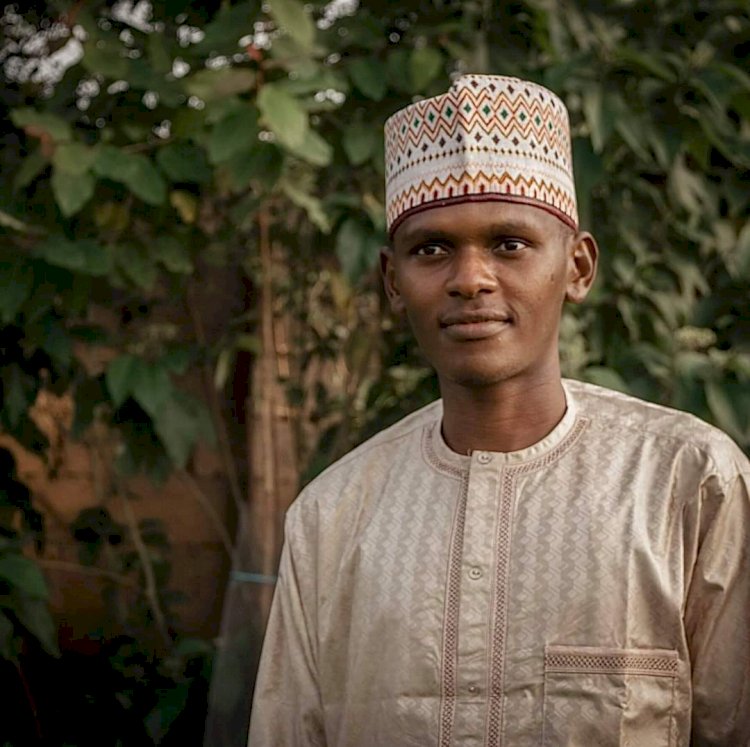Navigating Your Way to Greatness: How and Why By Adamu Tilde

[This is a paper I presented at Kabiru Sagagi Centre for Community Development and Leadership Mentoring Program yesterday]. Let me know what you think. Happy reading.
Good evening everyone. I thank the convener Engr Muhammad Salis Kabeer for inviting me to share the little that I know with you. The topic given to me is "Navigating your way to greatness: why and how." I do not know what exactly greatness means in this context. However, I suspect it means conventional success i.e. studying in the university, getting a well-paying job, marry and be happy ever after. If that is what the convener has in mind, then I am afraid: I have no formula for such a thing. Nonetheless, I will proceed to discuss some observations I made which I think would offer valuable insights on what awaits anybody who wants to be better than what he is and want to make a difference in people's life.
I was made to understand that all of you are from northern Nigeria. I will be honest with you: you are from a region that suffered lack of critical information about what the world is and how it operates. It's not your fault. Neither mine. It only becomes our fault if we allow the inherited disadvantages to define us. Do not do that. Luckily for us and thanks to technology, we can access all the critical information needed to make a difference in life with a click of a hand. In essence, we have no excuse not to be whatever we want to be.
Let me illustrate this lack of critical information. In 2018, a mentor confided in me the demography of the Nigerians working in the major IoCs of Nigeria's Oil and Gas sector. The major companies have about 10,000 staff of all cadres. What stroke my mind then was when he made me understand that close to 70% of the workforce came from one region of Nigeria with a combined salary of about 350 billion naira per annum. In other words, the income of those 70% staff (that's like 7000 people) was equivalent to the budget of Kano and Bauchi states with a combined population of about 26 million people. These poor representations can be seen in almost all the critical sectors of the Nigerian economy e.g. finance, telecoms, IT, services, consultancy, etc.
Again, if you are following the selection process of the Chevening Scholarship, Erasmus Mundus Scholarships, Commonwealth Scholarships, and other bodies and institutions awarding scholarships and research grants for graduate studies, you would find graduates from northern Nigeria poorly represented. For example, of the 49 Nigerians selected for the Chevening Scholarship 2019/2020 session, 95% were from southern Nigeria. A similar observation can be seen in the Erasmus Mundus Scholarship. If my memory serves me well, only 2 out of 40 Nigerians selected for the Erasmus Mundus Scholarship were from northern Nigeria in the 2019/2020 session. And to the glory of God, I guided one of the two during the application process.
The questions to ask ourselves are:
1. Is there a deliberate effort to stop people from northern Nigeria from joining those important sectors?
2. Why are graduates of northern Nigeria conspicuously absent in those important sectors?
3. Are graduates from northern Nigeria sufficiently trained to secure jobs in those sectors? If yes, why are they not there? If no, what are we doing wrongly?
4. Are graduates from northern Nigeria in the know of the countless opportunities outside Nigeria?
I will attempt to answer the above questions. Note the word "attempt". I do not know the answers. I will only share what I think are some underlying factors that explain our absence in those important sectors. I hope you would pick one or two lessons from my explanation.
1. Poverty of ambition. My friend Dr. Marzuq had written a beautiful thesis on this. I implore you to Google search "Northern Nigeria and the poverty of ambition." Our ambition is limited. We are easily satisfied with less. We easily become comfortable with the little at our disposal, believing that that's all for us. This perhaps explains our lack of resolve and determination to go beyond the known, to explore the outside space. You have to be ambitious to dare and explore unknown terrains. And being ambitious is not bad or a terrible habit that is mutually exclusive with being religious or righteous. I will expand on this in the latter part of this presentation. So be ambitious to cross the imaginary line and go beyond the artificial ceiling. Be daring to achieve what has never been achieved in your family, town, and state. Be the pace setter. Let others learn from the standards you set.
2. Cultural baggage: a mix of culture and religion has inadvertently created a form of cultural heritage that puts us in a disadvantaged position. We have a culture that is somehow contemptuous of prosperity and wealth. We see poverty as a virtue. This culture diminishes any form of competition which is critical in exploring opportunities in the aforementioned sectors. To survive the 21st century, you have to be overtly competitive to subdue your competitors by whatever means possible. This implies having a quality degree in the range of first and second-class upper, postgraduate qualifications, additional certifications, and professional membership.
Let go of a worldview that deodorizes poverty as a form of virtue or righteousness. Money is not the root of all evil, poverty is. Be overtly competitive and determined to excel. Do not let friends and family members blackmail you because of your resolve to better your life. You can be rich at the same time religious. The two are not mutually exclusive.
Another baggage you must conquer to excel is the challenge of received wisdom that: whatever will be, will be. This is not entirely true. Nobody is destined to be poor as the widespread teaching goes. Besides, poverty does not need any explanation. It is a man's baggage since antiquity. What requires explanation is wealth creation because it involves work. To create wealth is to engage in activities that offer values and services people would be willing to pay. It has been demonstrated again and again that those with quality education are more disposed to create wealth. I am sure you do not confuse school certificates with education.
It is disingenuous of you to think that you would be in McKinsey or Boston Group Consulting when you do not want to put the required effort into mastering advance quantitative reasoning and improved communications skills. Again, you want to win a competitive scholarship but you do not want to make several attempts. Who are you? We have to acquire the discipline of pursuing opportunities to a logical conclusion. If it would take you three years to acquire ICAN, ACCA, CFA or COREN certification, do so. If you would have to be rejected ten times before winning any postgraduate scholarship, do so. The reward afterward is worth the effort. Besides, why do you expect greatness to be easily achieved?
Lastly, even if what will be, will be, it is no excuse for mediocre performance and disregard for effort. Put in the required effort and let what will be to be.
3. Being captives of irrelevant values: Values change according to the dictates of time and circumstance. For example, blowing your trumpet was once regarded as distasteful but today, in the age of LinkedIn, you have to sing your song, you have to tell people what you can do even if mildly exaggerated. A mix of self-doubt and self-confidence will go a long way in pushing you to achieve greatness.
Another habit that I think is also detrimental to achieving greatness is the quest for instant gratification. We seem to be in hurry to arrive quickly. We are quick to adjudge a path as dead-end when we have not even started the journey. We do not like processes. We want to cut corners. But greatness is achieved after putting in a considerable amount of time, energy, and intellect. We would be where we want to be if we remain focused, determined, and dedicative. It takes time but we would be there, Insha Allah.
If values you cherished are detrimental to achieving greatness why should you continue to uphold them? For instance, as social animals, gathering in one place to chat and banter makes us happy. But this comes at the expense of effective utilization of time and energy in engaging in productive activity. In this case of what use is the continuous patronage of "Majalisa" and the addictive behavior of WhatsApping, Facebooking and Instagramming?
Going Forward
I do not claim to possess the magic bullet or the elixir that would lead to attaining greatness. However, careful observations of the lives of people who have distinguished themselves in their chosen careers leave me with the following deductions;
1. Possession of a can-do spirit. You have to believe in yourself, in your ability to achieve great things. Having such a spirit would instill in you the desire to confront any challenge head-on. You would always be willing to put in the effort required. Your effort may not all the time lead to the desired result but it would guarantee free conscience that at least you have tried.
2. Discipline to compete no matter the odds against you and ability to see things through. You have to be tenacious and persistent in pursuing your dreams. You have to keep trying and trying. Great things take time to achieve.
3. Delay gratification. There is no such thing called "sudden success". Greatness is a product of meticulous and long-time investment in the accumulation of skills, knowledge, and experience. It does not come suddenly. You have to learn to be patient and wait for the right time. The act of waiting is not slaving as erroneously believed by many. The trees that are slow to grow bear the best fruits.
4. Be comfortable with being uncomfortable in an uncomfortable circumstance or environment. We all want to be close to our loved ones and the people we know. But that should not come at the expense of settling for mediocre performance. Tough times never last, tough people do. No circumstances are permanent.
I will stop here. I thank the convener for inviting me to share my thoughts with you. I thank you the audience for listening and wish you luck in your future endeavors.
Goodbye.


















































